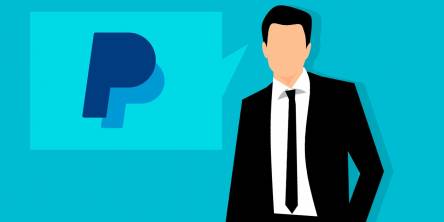What Type of Bank Account Is Right for You?

There are several types of bank account in the UK, and with so many choices, it can be hard to know which type of account suits your needs the most. But worry not, this guide is going to help you understand the different types of bank account and their advantages and disadvantages.
Fee-Free Basic Account
This type of account is the most basic account that you can have; however, because of this, it offers fewer services than a regular current account.
With a fee-free basic account you can:
- Have wages, benefits and other income paid into the account
- Pay money and cheques into the account for free (must be British currency)
- Withdraw money from a branch or cash machine
- Set up Direct Debits or standing orders
- Check account balances in a branch, at a cash machine, online or on your mobile
- Use a debit card to pay in-store and online
Current Account
A current account is the standard banking account in the UK that most people have. These accounts have the same functions as the basic account above and added capabilities as follows:
- You receive a cheque-book, as well as a debit card
- You are eligible for overdraft facilities
- You’ll get monthly or quarterly bank statements
- Internet access, online, in-app and telephone banking are usually available
Savings Account
A savings account is an account where you can put your money so it can grow in value over time by accruing interest. Anyone can open a savings account, and they can be paid into at any time. There are also different access limitations depending on the type of savings account you open.
An instant-access savings account is one where you can instantly add to or withdraw from it at any point in time. A notice account requires you to give notice (such as 60 days) to withdraw money or else you will be charged a penalty. A regular saver requires you to save up a set amount each month, and a fixed bond is a savings account that locks your money away for fixed-term and often has a fixed interest rate for the whole term.
Student Account
A student current account has all of the same capabilities as a regular current account. However, it does have some additional benefits for students. These accounts will typically come with an interest-free overdraft up to a certain amount, and extra freebies such as railcards, discounts and just free money for choosing that bank. After your time as a student ends, you are free to close the account and open a regular current account with that bank, move to a graduate account or switch to another bank and open a standard current account there.
Business Current Account
A business current account functions in much the same as ways as a standard current account; however, these accounts are designed specifically for business use. When choosing a business bank account for your company, look for one that offers low charges and good interest rates.
What you need from your account will depend on what your normal business operations are. If you primarily make electronic payments, you need an account that offers low-cost or free electronic transactions. However, if you primarily use cheques, you should look for low charges for paper transactions.
A lot of banks also provide useful resources for small businesses, such as advice teams, helplines, and other benefits.
By working out what your banking needs are and comparing them to the different accounts offered by different banks then you will be able to get yourself the best deal and, most importantly, the right type of bank account for your needs.
Similar Articles
Master your finances with these 7 smart money management techniques. Take control of your financial future today!
Paypal also provides money transfers between countries. You can send money to more than 200 countries through Paypal. It’s also possible to make purchases by using a credit card via Paypal. While doing this, you don’t need a physical card. Like Wise, Paypal also offers safe and fast money transfers.
Mobile money is essentially an electronic wallet service, available in many countries. This service allows users to send and receive money from their mobile phones. As per a report from the World Bank, more than 1.7 billion adults do not have a bank account
As a result of the pandemic's pent-up consumer demand, Americans are preparing to travel once more. If you're planning a trip to another nation for your next holiday, you'll want to know how to receive foreign currency without paying extra fees.
The digital transformation which refers to the integration of digital technologies, data, analytics, etc. intending to ameliorate processes and business results, has been making a lot of noise, especially in the banking sector.
The financial sector is among the most complex in the world owing to not only the sensitive nature of the data involved but also because of the countless factors that play an important role in its successful operations.
In the wake of the global pandemic, the BFSI sector has realized the benefits of adopting a cloud migration strategy to better serve customers and stay ahead of the competition.
The last year has been challenging for people working in loads of different professions. Those who deal in finance and investments have not been immune to the struggles and strains that the Covid-19 lockdown has caused.
Growing a business is the dream of every entrepreneur but it is not as easy as it sounds. If you aspire to take the business to new heights, you need to have funds in hand. You cannot drive business growth if you do not have enough funds to spend towards the long term goals.









